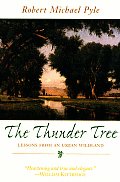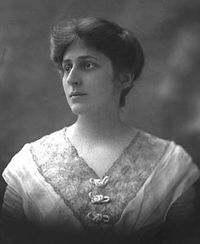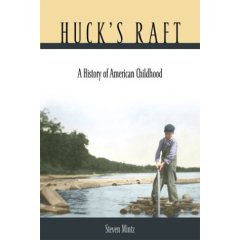Alternate blog post title: Seduced by Caitlin Flanagan
 To Hell with All That: Loving and Loathing Our Inner Housewife
To Hell with All That: Loving and Loathing Our Inner Housewife, by Caitlin Flanagan, has already been reviewed so many times - and the author has given so many interviews, some of them (like the
Colbert Report) so outrageous - that I hardly thought it was necessary to read the actual book.
That'll teach me to judge a book by its press:
To Hell with All That was not at all what I expected.
(Next thing you know I'll read Linda R. Hirshman's
Get to Work: A Manifesto for Women of the World and learn that Linda really loves scrubbing toilets and changing diapers).
I expected an anti-feminist diatribe against working mothers. Perhaps a more eloquent version of Kate O'Beirne's
Women Who Make the World Worse: And How Their Radical Feminist Assault Is Ruining Our Schools, Families, Military, and Sports, which I was embarrassed to be seen checking out of the library, and returned in disgust after reading a few ridiculous chapters.
What I found was a collection of essays - some autobiographical, some on current social mores (Martha Stewart and modern weddings) that I genuinely enjoyed. It is true that a few sentences made me choke on my coffee, provoking the same WTF? response that I had when I saw the infamous Colbert Report clip, but there were many passages where I nodded my head in agreement or wrote "true" in the margins. As I write this, I realize that I'm saying much of what Jen Lawrence said in her
review in LiteraryMama - but that's pretty much how it happened, and I am going to go on and
fisk a few things I haven't seen in the other reviews.
from the Preface: Writing honestly about these issues in the national press has been difficult because it required challenging certain articles of faith that comprise what the current American feminist agenda requires us to believe about womanhood. (p. xviii)
I've considered myself a feminist for at least the last 25 years, so I'm not sure how I completely missed the required "articles of faith". I thought that it was fairly impossible to get a group of feminists to agree on much, let alone an American agenda that includes all of the points that Flanagan lists. Her points are a caricature of some radical feminist ideas. All that's missing is a reference to bra burning. Linda R. Hirshman, now, probably agrees with many of the points, but she's not exactly a mainstream feminist.
The first article of faith: Girls do not have a natural interest in homemaking. (p. xviii)
Since I've never had much of an interest in homemaking, my first reaction was "Am I not a woman?" And what does she mean by "natural"? That there's a biological basis for females doing housework? Then why is it so easily overcome by messy housewives? Women wouldn't ever hire housekeepers like Caitlin does if it was in our genes, they'd
have to do themselves. Meh, I'm just suspicious of how many cultural things are attributed to nature. But onward to the rest of the book.
from The Wifely Duty (which I think could also be called Sex Is an Obligation Once You're Married): The reason abortion rights hold such a sanctified position in American political life is that they are a critical component of the yuppie program for maximum personal sexual pleasure. (p. 22)
This was one of those sentences that made me choke. Maybe this would be true if contraceptives were not available, but today? Nah, can't see it. And personally, I don't see the overwhelming lack of sex within marriage that Caitlin does. Maybe it has something to do with our different circles of friends. She does note that "Nowadays American parents of a certain social class seem squeaky-clean, high-achieving, flush with cash, relatively exhausted, obsessed with their children, and somehow - how to pinpoint this? - undersexed." (p. 33). It certainly seems like Caitlin Flanagan is in the same neurotic social circles that
Judith Warner is. I guess that explains a lot.
I did enjoy her discussion of Marabel Morgan's
The Total Woman, which I read myself right after reading Darla Shine's
Happy Housewives, and I was happy to hear that Caitlin was "not entirely incapable of good old-fashioned feminist rage" about "The notion that even educated middle-class American women had to put out in order to get a damn refrigerator" (p. 29).
from Housewife Confidential: The notion of a domestic life that purrs along, with routines and order and carefully delineated standards, is endlessly appealing to me. It is also quite foreign, because I am not a housewife. I am an "at-home mother," and the difference between the two is vast. (p. 38)
Now I was very interested to see this, because a while back I pondered the difference between the two
here in my blog. Apparently, in Caitlin's world, the major difference is economic: if you can afford to hire housekeeping help (or you just don't care about clean floors?), you get to be an "at-home mother" without the drudgery of housework.
I was fascinated by her paean to the Midwest (having lived in this part of the country for most of my life), but I have to say that her fantasy of a place where "most of life's difficulties could be handled with a combination of good humor and endurance" (p. 55) is just as much a myth as her characterization of growing up in the 60's:
...a bygone age, as remote and unrecoverable as Camelot: a world of good meals turned out in orderly fashion, of fevers cooled without a single frantic call to the pediatrician, of clothes mended and repaired and pressed back into useful service rather than discarded to the rag heap as soon as a button pops or a sleeve unravels. (p. 167-8).
Well, Camelot was pretty much a complete fantasy, wasn't it? But how hard is it really to learn to sew a button on, Caitlin? My husband does it occasionally, as do I. Maybe our skill is linked to our hardy Midwestern upbringing in the 60's, but I do think that someone whom is obviously intelligent and watches so much Martha Stewart could switch off the TV and take ten minutes figure this button thing out.
from A Necessary Person: Children love the person who provides daily physical care to them in a singular and primal way - a way obviously designed by Nature herself to cleave child to mother and vice versa. (p. 65)
I've already commented on her use of natural with a small "n". Forgive me if I'm not impressed by Nature with a large "N" either. I think reading Sarah Blaffer Hrdy's
Mother Nature: Maternal Instincts and How They Shape the Human Species provides a more realistic idea of the blood and gore and ambition and love and other emotions that characterize all mothers, from Susan Smith to Phyllis Schlafly.
from Drudges and Celebrities: The New Housekeeping: I remember, during that time, knowing many girls whose mothers had discarded many things, giving up decent housekeeping, turfing out husbands, taking up weird pastimes....They were starting compost heaps in the backyard: moldering heaps of garbage, rich with worms and loamy rot....They would have hideous caches of broken eggshells and wet coffee grounds squirreled away on kitchen counters, waiting to be delivered to the compost heaps. (p. 143)
Oooh, she's got me there. Too bad Caitlin wasn't here two summers ago to see our experiment with vermiculture in the basement. However, despite my hideous cache on the kitchen counter (which I'll have to ask my friends if they've noticed, now), I do manage to comb my daughter's hair, and I don't wear batik. I absolutely
hate twinsets, though, which Caitlin seems to favor. I do rather like tie-dye, but I still manage to shave my legs. Sometimes. Oh, and I haven't turfed out my husband, whom I've lived with for 23 years now.
from Clutter Warriors: And so began one of the most important relationships in my life. My organizer, let us call her Sarah...(p. 163)
Give me a break. Your household organizer is one of the most important people in your life? Gah.
Something that I found endlessly interesting throughout this book is that Caitlin is (give a take a few months) the same age that I am - and my mother also returned to work full-time when I was 13 (Caitlin was 12 when her mother got a job after being home with her previously).
"Being home alone is stressful for a child," psychologist David Elkind has written and he's dead right. Just walking through the front door each afternoon to be met by the quiet gloom of the empty living room was depressing.... Afternoons alone in the house were often frightening. It did not help that I am a hysteric by nature.
Now maybe it was the result of living in a bucolic small town in Illinois, but I didn't find being home alone after school particularly stressful at that point. In fact, I reveled in the freedom to do whatever I wanted. The only time I was ever scared was while reading
The Amityville Horror (and I'm fairly certain I would have been scared even if my parents had both been home while I was reading that).
from To Hell with All That: And when I couldn't walk from the car to the doctor's office, he carried me. And if that's a traditional marriage, I'll take it. (p. 195)
This is a famous line that has already drawn scores of comments. My only comment: that's not traditional marriage, that's commitment, and the two are not necessarily the same.
So these are the kind of things that bugged me in
To Hell with All That. I haven't really praised the parts that I liked much, although there were many. Several passages had me howling with laughter, and I chuckled at quite a few more. Her passages about cleaning out her parents' house were beautiful. They made me think about my parents' house (which I haven't had to clear yet, thank goodness), and my great-grandmother's kitchen tools, which I use fairly often, thinking of her. And how can I loathe a woman who uses the word elegiac so elegantly, no matter how misguided she is sometimes?
As I described the book to my husband (describing what little I knew about the author's personal life), however, I realized something interesting. Why didn't Caitlin change her name when she got married if she's such an ardent anti-feminist?
 The Thunder Tree: Lessons from an Urban Wildland, by Robert Michael Pyle, is a hard book to summarize. I think the different chapters work better as free-standing essays. Some of them waxed so eloquent I was in tears (and I’m not even pregnant, so I don’t cry at the drop of a hat anymore), and a few others I had to struggle to finish because I got mired in the plants, ecological relationships, and butterfly species Pyle describes. If you are acquainted with Denver and the history of its suburbs, or the history of water use in the western US, you’ll also like The Thunder Tree, but I imagine that this isn’t a huge group of readers.
The Thunder Tree: Lessons from an Urban Wildland, by Robert Michael Pyle, is a hard book to summarize. I think the different chapters work better as free-standing essays. Some of them waxed so eloquent I was in tears (and I’m not even pregnant, so I don’t cry at the drop of a hat anymore), and a few others I had to struggle to finish because I got mired in the plants, ecological relationships, and butterfly species Pyle describes. If you are acquainted with Denver and the history of its suburbs, or the history of water use in the western US, you’ll also like The Thunder Tree, but I imagine that this isn’t a huge group of readers.












